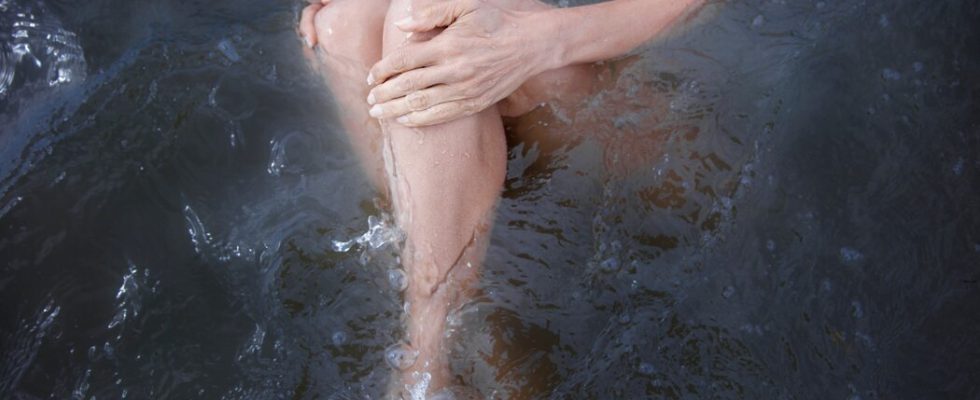In the locker room, women’s voices discuss the temperature of the air (too cold), their gardens (the weeds!), their sisters (impossible). I eavesdrop as I pull on my one-piece and flip-flops, grab my bag of toys. Blithely I bypass the lap pool; not once in my adult life have I craved more repetitive activity. Instead I set up shop on the side of the warm-water pool — foam weights, kickboard, noodle — and, slipping into the 92-degree water, I sense a holy transition. The others arrive by way of a long ramp, discarding canes or walkers, hoisting themselves from wheelchairs, fingers trailing in deepening water. It’s a runway, but no one looks at them. The Santa Fe Community College warm-water pool is not a place to be seen.
Like many of these women, recovering from surgery, injuries or the vicissitudes of life, I’ve had to learn a new body: In my early 20s, I was diagnosed with POTS (Postural Orthostatic Tachycardia Syndrome), a chronic illness whose symptoms include extreme physical fatigue. I’d always fainted — from standing too long for the sixth-grade class fish dissection or running a mile in gym class — but now I was fainting while sitting in a chair, woozy every time I stood. The cardiologist offered me salt pills and sent me on my way.
POTS was then understudied, like many ailments found chiefly in women. But astronauts had long reported feeling dizzy as they returned from space, and NASA investigated the underlying cause: orthostatic intolerance, or a struggle with standing up, of which POTS is a type. Five years after my diagnosis, I told a student of a NASA-funded researcher how I was unable to stand for my eight-hour bookstore shift without leaning most of my weight on the counter; how I fell asleep on my lunch break. She responded with my personal nightmare: an exercise regimen.
At first I could barely manage five minutes on a rowing machine or a recumbent bike. With POTS, I felt so heavy. Mornings, I’d moan to my partner, “I’m in the well!” Unable to lift my own head, I propped myself up on a series of pillows to get out of bed. Pathetically, valiantly, I worked my way up to 15 minutes of recumbent exercise, to 30 minutes, to walking on a treadmill. I read a book the entire time — dense poststructural theory, so excruciatingly bored was I by the foot-smelling university gym. Still, it astonished me I could do any of this with my Grinch heart. I graduated to walks outside in the Texas swelter and swims in the neighborhood pool. Something shifted during those first dips, treading water and dodging toddlers. I wasn’t weightless, but gravity had less of a hold on me.

